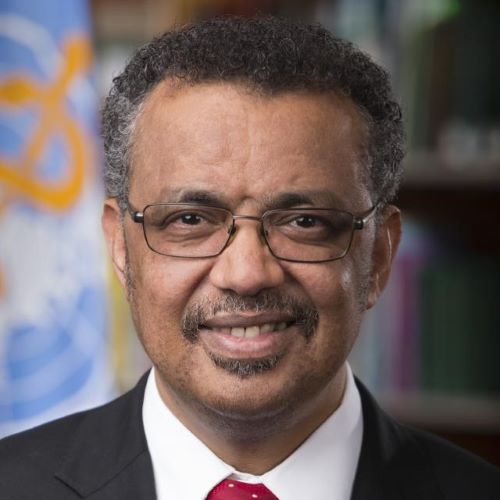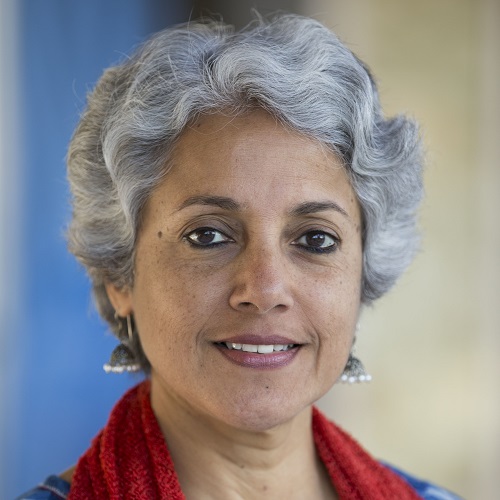The world is unprepared for global health crises and is not ready for using artificial intelligence for the covid-19 response
The covid-19 pandemic has shown that the world is unprepared for global health crises. There is an urgent need to establish robust and resilient health systems that can better respond to health challenges, including future epidemics that could surpass the intensity and gravity of covid-19. It is time for countries to invest in preparedness capacity and healthcare, drawing lessons learnt from the current crisis.
Artificial Intelligence (AI) holds much promise in revolutionizing pandemic preparedness and response and healthcare more broadly. The pandemic has accelerated the application of AI in health, but applying the technology for real world impact has generated many hard questions. The World Health Organization (WHO) is committed to supporting countries to use these transformative technologies to advance pandemic preparedness and response capacity and strengthen their health systems. WHO’s Department of Digital Health and Innovation spearheads digital technologies for covid-19, and plays a pivotal role in supporting countries at various stages of digital development.
In September, Dr Tedros was honoured to join Chancellor Angela Merkel to open the WHO Hub for Pandemic and Epidemic Intelligence in Berlin, a new centre designed to foster greater sharing of data and information between countries and to improve global surveillance for epidemics and pandemics by harnessing the power of artificial intelligence, quantum computing, and other cutting edge technologies.
While the pandemic has made the strategic importance of AI more evident, countries are at different stages on their journey towards the development of AI supported tools. Some countries have integrated AI into their pandemic response and have achieved some success; they are now looking to broaden its application and enhance its impact in a more sustainable way. Other countries have increased the availability of AI technologies, and are now looking to scale up its application in targeted fields. Many others are still new to AI, being unfamiliar with the potential of these technologies. However, the development trajectory of AI is non-linear and all countries can potentially benefit.
Some of the challenges faced by countries implementing AI into their covid-19 response are explored in a recent collection of articles in The BMJ. These challenges include the legal, economic, ethical, equitable application of AI and the importance of culture and collaboration. For countries aiming to increase their AI capacity for health, there are two strategic steps for which WHO is actively providing guidance: fundamental readiness and operational readiness.
Fundamental readiness is the preconditions needed to apply AI technologies. They include infrastructure and data supporting mechanisms. High quality universal internet access is the nervous system for AI innovation. It can facilitate telemedicine and break the geographical location limits of medical resources by supporting remote diagnosis and treatment. Intelligent connectivity, a new concept combining 5G, AI, and the internet of things, will enable new disruptive healthcare models. Investment in connectivity infrastructure for AI can help strengthen health systems and prepare countries for future pandemics.
WHO is providing guidance and support for countries wanting to achieve fundamental readiness: for example, in 2020 our Department of Digital Health collaborated with Saudi Arabia during its G20 presidency, to identify gaps and actions for preparing digital health infrastructure. The Broadband Commission for Digital Development, the UN’s high level public-private partnership of which Dr Tedros is a commissioner, initiated and disseminated a repository of tangible actions around resilient connectivity. As AI algorithms are built on the accessibility of high quality data, new mechanisms that identify the most relevant data and make these data actionable will allow countries to develop AI for health. WHO has also established a covid-19 literature database, which now contains more than 310 600 vetted papers and preprints in one of the 150 languages around the world.
Operational readiness is how AI technologies can be used in a responsible and sustainable way. It includes having a robust AI governance system and a workforce with sufficient expertise and skills. AI governance is the system of principles, laws, and regulations that ensure humanity can best navigate the transition to advanced AI systems. AI governance is uneven across the world with policy and regulatory measures varying substantially in different jurisdictions.
WHO provides guidance and support to ensure global accountability for AI governance is in place and that it covers global regulatory and legal environments. For example, WHO recently published guidance on the ethics and governance of AI for health. The Department of Digital Health and Innovation has also collaborated with the UK during its G7 presidency to work on internationally recognised standards for AI. Many countries face a lack of expertise and the need to upgrade the skills of the workforce. Compared with high and upper middle income countries, which are better placed to gain the benefits of AI technologies, low and lower middle income countries face a widening gap in skills and expertise, which cannot be filled with official development assistance alone. Currently the WHO’s Department of Digital Health and Innovation is partnering with the International Telecommunication Union (ITU), the United States Agency for International Development (USAID), and the Deutsche Gesellschaft für Internationale Zusammenarbeit (GIZ) to run a Digital Health Leadership Training Programme, with focuses on improving the technology literacy of the health workforce and decision makers from low and lower income countries.
AI has the potential to revolutionise our visions and methods in the covid-19 response. WHO will continue to support countries to accelerate preparedness for these strategically important technologies for next generation pandemic response and healthcare management.
 Tedros Adhanom Ghebreyesus, director general, World Health Organization
Tedros Adhanom Ghebreyesus, director general, World Health Organization
 Soumya Swaminathan, the chief scientist, World Health Organization
Soumya Swaminathan, the chief scientist, World Health Organization
Competing interests: none declared.
This article is part of our Artificial Intelligence and covid-19 collection.
